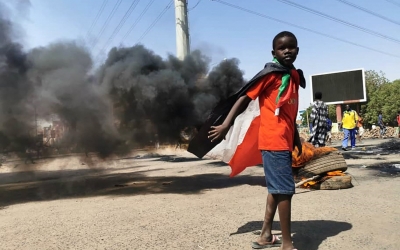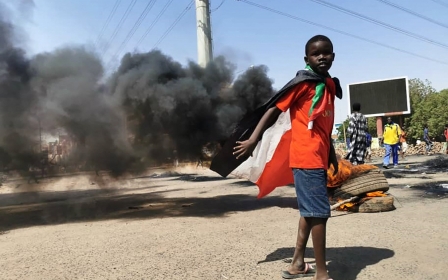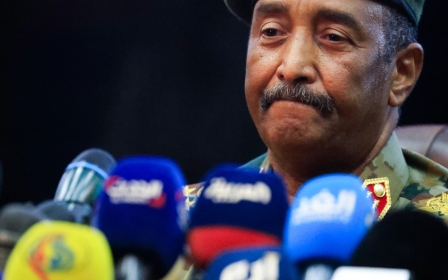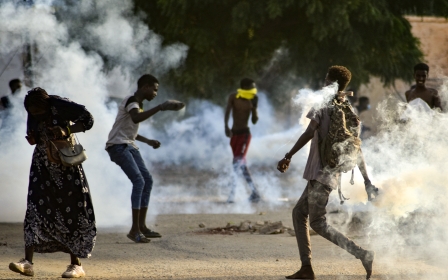Sudan coup: Burhan says he is trying to persuade ousted premier Hamdok to return
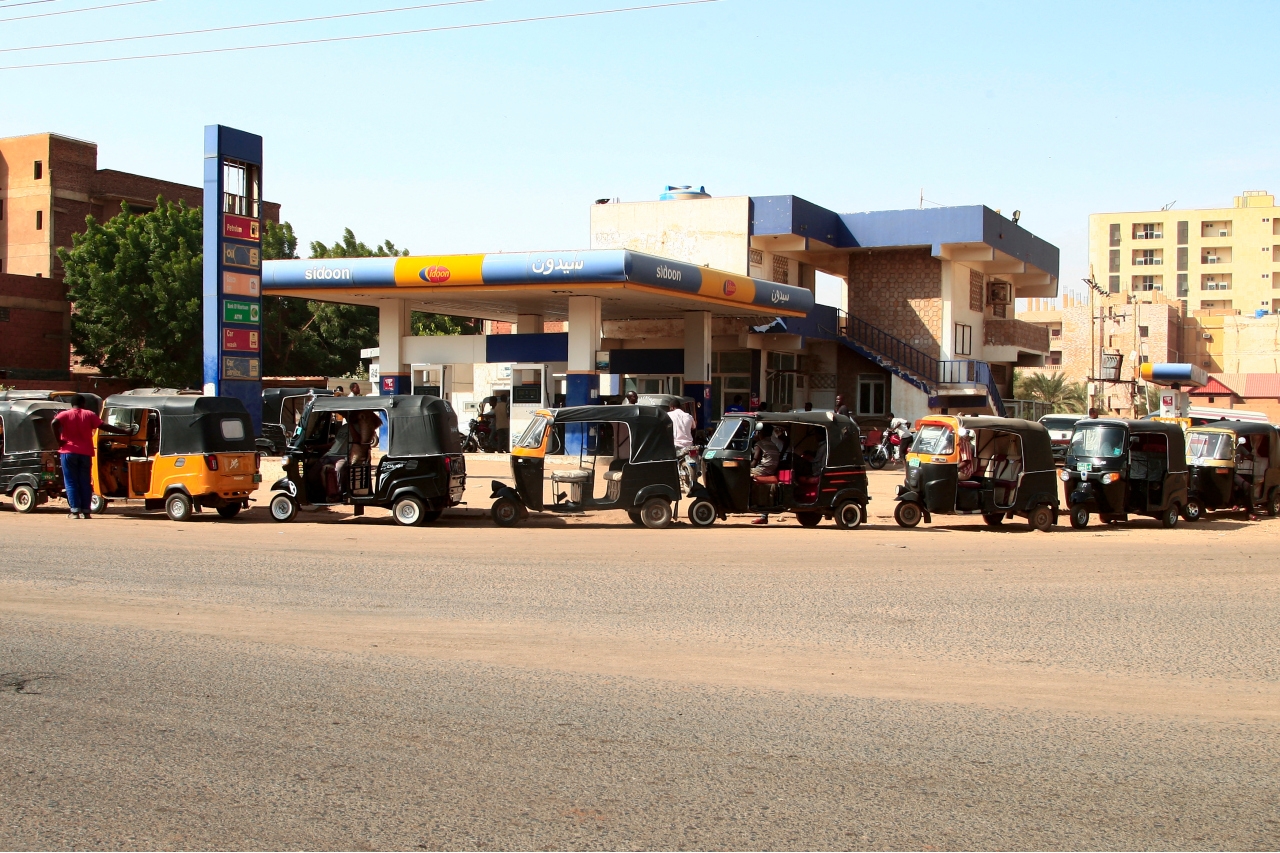
Sudan's military coup leader General Abdel Fattah al-Burhan, facing pressure at home and abroad to restore power to civilians, has announced that a new prime minister will be announced within a week, and that he is still trying to persuade the man he ousted to return and form a new government.
Western countries have cut off hundreds of millions of dollars in desperately needed aid to Sudan since Burhan dissolved a power-sharing government led by Prime Minister Abdalla Hamdok on Monday. Hamdok's government was meant to steer Sudan to elections in 2023, after long-serving ruler Omar Hassan al-Bashir was toppled two years ago.
New MEE newsletter: Jerusalem Dispatch
Sign up to get the latest insights and analysis on Israel-Palestine, alongside Turkey Unpacked and other MEE newsletters
In comments to the Russian news agency Sputnik published on Friday, Burhan said the new government would be led by a technocrat. "We will not interfere in the choice of the ministers," he said.
The cabinet would be chosen by the prime minister, who would be "agreed upon by different sections of the Sudanese people", he said.
A new prime minister and Sovereign Council, a civilian-military body which Burhan dissolved along with the cabinet, will appear in Sudan within a couple of days - "within a week at the latest", Burhan added.
'We cleaned the stage' for Hamdok
On Thursday night, Burhan left open the possibility of Hamdok becoming prime minister again, saying the army was negotiating with him to form the new government. In a speech to groups who helped to remove Bashir, Burhan said consultations were under way to select the prime minister.
"Until this night, we were sending him people and telling [Hamdok]: complete the path with us," he said. "Until this meeting with you, we were sending him people to negotiate with him and we are still having hope. We told him that we cleaned the stage for you... he is free to form the government, we will not intervene in the government formation, anyone he will bring, we will not intervene at all."
Hamdok, an economist and former senior UN official, was initially held at Burhan's residence after soldiers rounded up the government on Monday. He was allowed to return home under tight security on Tuesday.
Hamdok's allies say he has refused requests by the coup leaders to cooperate, and has demanded civilian power-sharing be restored and arrested ministers freed.
The office of the UN representative to Sudan said on Thursday that he had offered to facilitate a political settlement towards restoring the transition during a meeting with Burhan.
First Biden remarks
At least 11 protesters have been killed in Sudan in clashes with security forces so far this week, Reuters reported.
Security forces have continued to arrest opponents of the coup, with the sister of Nazim Sirag, a well-known pro-democracy activist, confirming that her brother had been arrested on Friday morning.
The United Nations and United States dialled up the pressure on Burhan on Thursday, when the Security Council called for the restoration of the civilian-led government and US President Joe Biden said his nation, like others, stood with the demonstrators.
"Our message to Sudan's military authorities is overwhelming and clear: the Sudanese people must be allowed to protest peacefully and the civilian-led transitional government must be restored," Biden said in a statement published by the White House.
"The events of recent days are a grave setback," the president said, referring to the military coup earlier this week that plunged the poverty-stricken country into chaos, "but the United States will continue to stand with the people of Sudan."
The readout was Biden's first official statement on the crisis since the military seized power in the early hours of Monday.
'March of millions'
Opponents of this week's coup have called for mass demonstrations on Saturday.
With authorities restricting internet and phone signals, protesters have been handing out fliers calling for a "march of millions" under the slogan "Leave!"
Security forces fired at protesters on Thursday night in Bahri, across the river from the capital, Khartoum, using live and rubber bullets, witnesses said. A doctors' committee said one person was killed in those clashes, while two others were wounded and in a critical condition.
"Confronting peaceful protesters with gunfire is something that should not be tolerated," protester Haitham Mohamed told AFP in Khartoum. "It will not make us back down; it only strengthens our resolve."
In an interview with US broadcaster PBS on Thursday, Jeffrey Feltman, the US special envoy for the Horn of Africa, said: "I think General Burhan is going to discover that it's not quite so easy as he and his forces may think to return Sudan to its dark past.
"They [protesters opposing the coup] are committed to making sure that this does not work, that the military does not control the country, that they don't go back to the type of pariah regime that was under President Bashir."
Aid frozen
Burhan's move reasserted the dominant role the army has had in Sudan since it gained independence in 1956. The coup was preceded by months of friction between the military and civilians over issues including whether to hand Bashir and others to The Hague to face charges of war crimes.
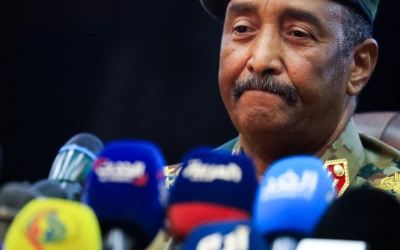
The coup leader, who had been due to hand leadership of the power-sharing Sovereign Council to civilians soon, has said he acted to prevent civil war, and has promised elections in July 2023.
After decades of pariah status under Bashir, Sudan had finally secured western aid, which has only recently begun to stabilise its economy.
The US has frozen $700m in assistance since Monday, and the World Bank, which granted Sudan access to $2bn in financing in March, has halted its disbursements.
The IMF, which approved $2.5bn in funding for Sudan in June, said on Thursday it was premature to comment on the implications of the takeover.
Middle East Eye delivers independent and unrivalled coverage and analysis of the Middle East, North Africa and beyond. To learn more about republishing this content and the associated fees, please fill out this form. More about MEE can be found here.


